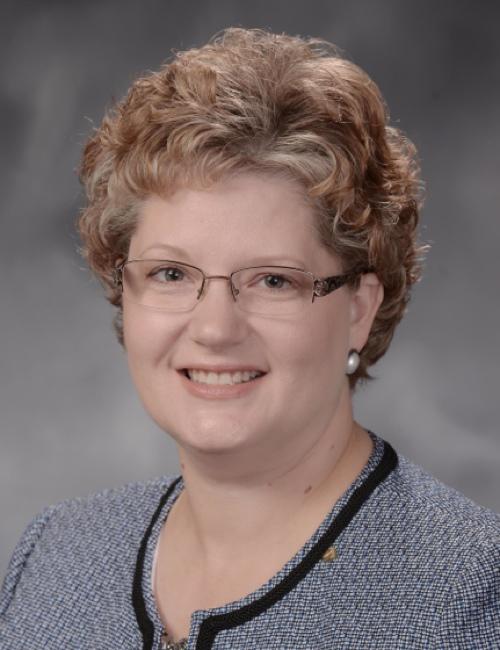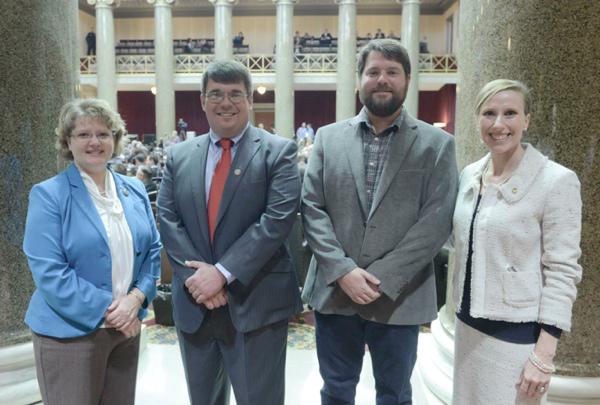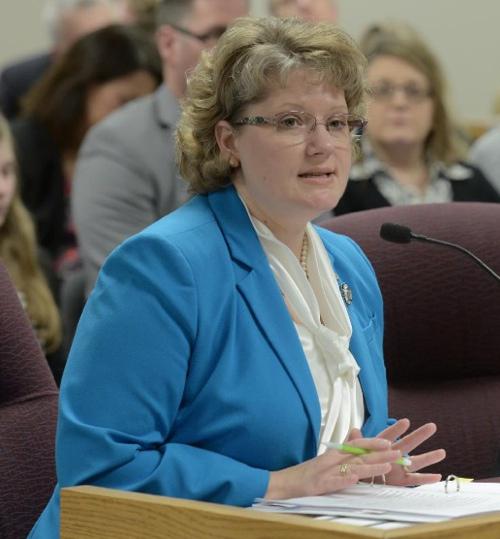
House and Senate Budget Leaders to Move Forward Cautiously with Budget Process
The House Budget Committee Chairman this week filed the appropriations bills that will make up the Fiscal Year 2017 state operating budget. For the first time in several years, the House Appropriations Committees and the House Budget Committee will begin their budget work based on the governor’s spending recommendations. Budget Chairman Tom Flanigan said the process will be a difficult one because the governor’s proposed budget is inflated and based on unrealistic revenue projections.
“The governor has a budget based on numbers we think are unrealistic, which means we will have our work cut out for us as we do our best to transform his proposal into a fiscally responsible spending plan,” said Flanigan.
Flanigan said the governor’s refusal to abide by a true consensus revenue estimate will force the legislature to use an abundance of caution in crafting the nearly $27 billion state operating budget. House Budget Chairman Tom Flanigan and Senate Appropriations Chairman Kurt Schaefer said the games played by the governor’s office have made it nearly impossible to work toward a fiscally responsible budget based on realistic revenue projections.
“As a legislature we want to be fiscally responsible stewards of taxpayer dollars, but it’s a constant fight against a governor who continues to move the goal line any time it suits him,” said Flanigan.
House Committees Release Planned Parenthood Report; Chairs File Legislation
The Missouri House Committees on Children and Families and Ways and Means released their report and legislative recommendations this week following the investigation into the actions of Planned Parenthood in Missouri.
The investigation began following the mention of St. Louis’ Planned Parenthood facility in a series of videos released last summer exposing the organization’s practices. Committee chairs invited top Planned Parenthood officials from its St. Louis region to testify on the organization’s procedures to no avail. As a result, the committees were unable to confirm whether the practices occurred or did not occur in Missouri, and committee leaders said measures stemming from the investigation would be proactive to make certain practices seen in the videos do not occur in the state.
State Representatives Diane Franklin, Children and Families chair, and Andrew Koenig, Ways and Means chair, outlined the investigation’s findings and steps forward to turn gray areas in the state’s abortion laws and regulations black and white. Franklin has filed four abortion bills stemming from the hearings with at least two more bills to come concerning family planning funding prioritization and legislative oversight. Koenig has introduced legislation regarding the abortion-to-disposal process for tracking and reporting purposes.
The bills filed by Franklin and Koenig include:
· HB 2068 that would prohibit a person from knowingly donating or making an anatomical gift of the fetal organs or tissue resulting from an abortion to any person or entity for medical, scientific, experimental, therapeutic, or any other use.
· HB 2069 that would provide whistleblower protections for employees who work in facilities that handle aborted fetal remains.
· HB 2070 that would change the definition of "remains of a human fetus".
· HB 2071 that would require all tissue removed at an abortion to be sent to a pathologist rather than just a representative sample of tissue.
· HB 2371 that would change the law regarding abortions.
“I look forward to moving these and other pieces of legislation to reform the abortion and disposition processes in Missouri,” Franklin said. “The committee hearings were the preliminary steps to taking action to protect and dignify innocent life in Missouri.”
Second Round of Ethics Reform Bills Headed to the Senate (HB 2166, HB 2203, HB 2226)
On the first day of the legislative session, House Speaker Todd Richardson called on the Missouri House to make substantive ethics reform a top priority for the 2016 legislative session. Just a few weeks later, the House had made good on his promise by approving seven separate bills that take a multitude of steps to improve the culture at the state Capitol.
This week the House gave overwhelming approval to HB 2166 to alleviate the undue influence of lobbyists in Jefferson City by banning gifts and meals provided by lobbyists to elected officials; HB 2203 to limit how long campaign funds can be invested and how they can be used; and HB 2226 to prohibit task force and commission appointees from profiting from the recommendations they make. All three bills now head to the Missouri Senate for discussion.
The bills join four pieces of legislation already moving through the Senate. HB 1452 would require elected officials to file a personal financial disclosure twice each year. Current law requires only a single disclosure each year. HB 1575 would require elected officials to report lodging and travel expenses in a timely fashion. The bill requires the expenses to be filed within 30 days of the reportable event. HB 1979 would require elected officials to have a one-year “cooling off” period after leaving office before they could become lobbyists. HB 1983 would make it clear that no statewide official or member of the General Assembly can serve as a paid political consultant while in office. All four bills have already received a public hearing in the Senate Rules, Joint Rules, Resolutions, and Ethics Committee.
Helping Small Businesses to Grow and Prosper (HB 1870)
The House approved and sent to the Senate this week a piece of legislation meant to cut the bureaucratic red tape that too often stifles the growth of small businesses in Missouri. House members approved legislation to revive the Big Government Get Off My Back Act for tax years 2016 through 2021.
The act originally ran from 2009 to 2014 and was instrumental in prohibiting new rules and regulations on small businesses, as well as unnecessary fee increases. The act also gives a $10,000 tax deduction for any small business, with 50 employees or less, that hires additional employees and pays them at least the average county wage. In its final year in 2014, the act provided tax relief to 196 small businesses throughout Missouri. Proponents hope to provide assistance to even more businesses by reviving the program.

Overriding a Presidential Veto
Friday, January 29, 2016
With that vote, the U.S. House and Senate stood with the American people and delivered Obamacare its biggest blow yet. The bipartisan repeal bill would have ended the catastrophic and costly individual and employer mandates, eliminated a host of associated taxes, and reduced the government intrusion between you and your doctor. Unfortunately, as soon as that bill hit President Obama’s desk, he promptly vetoed it.
Next week I will be supporting Congress’s first veto override attempt of this President. Simply put, the American people deserve a patient-centered health care system which is free of government intrusion. I will vote to override the President’s veto because repealing Obamacare is the right thing to do in order to restore the doctor-patient relationship and get our country on track to create a market based, competitive health care system that’s actually affordable.
Obamacare is a failure, even by the government’s own standards. The Congressional Budget Office recently reported that by 2025 Obamacare will cost the economy an equivalent of 2 million full-time jobs. Consumers have been left with fewer choices and health care remains un-affordable.
You elected me to put a major repeal of Obamacare on the president’s desk and to force him to answer the question, “Whose best interest do you have at heart?” When President Obama vetoed this bill he answered loud and clear, “I've chosen my own legacy and my own interests, over those of hardworking Americans.” He cares more about protecting his signature namesake law, than improving the healthcare system in this country.
Individuals should have the ability to choose their own doctor. They should be able to purchase affordable, high-quality health care insurance that offers the best healthcare safety net option for their family. Competition without government intrusion should help drive down prices and businesses should not be hampered by confusing and conflicting healthcare regulatory paperwork. Unfortunately, even bipartisan agreement in Congress isn’t enough to get this President to accept changes to his namesake healthcare law. I know many will join me next week in attempting to override his veto and I can only hope it’s enough. When it comes to affordable and accessible healthcare, we all deserve better.



|
Statement on Noranda Aluminum Workforce Reduction Jefferson City, Missouri - It's a sad day in Southeast Missouri with the recent announcement by Noranda Aluminum in New Madrid that two of their three potlines have gone offline due to a catastrophic loss of electrical supply. Therefore, in the upcoming weeks Noranda announced reduction of employees at the New Madrid Smelter to adjust for operating only a single potline instead of three. This is a tragedy for all of the workers and their families who depend on Noranda and their good paying jobs. The local communities and subsidiary companies that supply Noranda will also be affected. Manufacturing companies across the United States have been struggling due to burdensome regulations and unfair trade laws passed by the federal government. The reluctance of USA custom agents and other government officials to enforce our country’s trade laws has resulted in foreign countries like China to continue dumping cheap, inferior products, and manipulating currency exchange rates. Coal-fired power plants over the past several years have also come under attack by the federal government, making it harder for families and businesses to pay their electric bills, especially in the Midwest. Affordable and reliable electric rates are vital to businesses remaining open and providing jobs We need Washington D.C. to quit passing burdensome regulations and defend our homegrown manufacturers from unfair government subsidized trade practices by foreign competitors. The combination of rising electrical costs, lack of enforcement of our trade laws, and job killing regulations is destroying manufacturing and businesses across our country. Many of Noranda’s domestic competitors have been going out of business in recent years because of these very same issues. It is very difficult to remain in business without affordable electrical rates. USA manufacturers cannot afford to continue producing products and selling below manufacturing cost. Until our federal and state governments change their ways, we will continue to see more American companies struggle or close. I will continue to do everything I can in Jefferson City to assist Noranda and its employees through this stormy period. My prayers and sympathy goes out to the workers and families of Noranda already affected by the layoffs, and those who may be in the future. |
|

